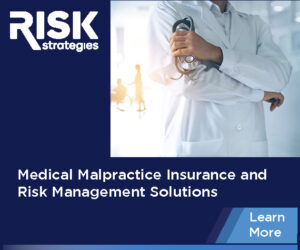Jennifer Negley
 Expert witness testimony is essential to all medical malpractice legal proceedings. Usually, without a medical expert, plaintiffs cannot proceed to trial, and defendants are usually doomed to an adverse jury verdict. Medical experts are recruited in many ways, even from proprietary companies that offer a diverse variety of experts.
Expert witness testimony is essential to all medical malpractice legal proceedings. Usually, without a medical expert, plaintiffs cannot proceed to trial, and defendants are usually doomed to an adverse jury verdict. Medical experts are recruited in many ways, even from proprietary companies that offer a diverse variety of experts.
Finding these crucial experts varies from direct attorney contact to agencies offering a wide range of specialists. Though they’re key figures in court, their most important job is to be unbiased and help decide the case fairly. Professional organizations like the American Academy of Family Physicians have outlined stringent guidelines:
Unwavering Objectivity:
Physicians serving as expert witnesses must hold themselves to the highest ethical standards, ensuring complete and unbiased information is presented. They are not advocates, but impartial guides illuminating the medical realities of the case.
Adherence to Standards:
Their opinions should reflect the established benchmarks within their specialty, both at the time of the alleged incident and in the present. Thorough familiarization with the case and relevant medical standards is paramount.
Fair Compensation:
Recognizing the significant time and effort involved, reasonable and commensurate compensation for expert witnesses is essential.
In this time of shrinking fees and increased costs, physicians are debating if they should offer their services as a paid medical expert. Many questions arise when considering this path. One prominent national insurance carrier has challenged this matter with a few questions that can be beneficial when evaluating this option. Among them are:
Schedule Balancing:
Can you seamlessly integrate court appearances into your patient care schedule without compromising either?
Case Complexity:
Are you prepared for potentially vast medical records, repeated attorney meetings, lengthy depositions, and extended court battles?
Pressure and Performance:
How comfortable are you with verbal sparring and intense scrutiny in a courtroom setting?
Potential Repercussions:
Could your testimony be used against you in the future?
Maintaining Expertise:
Can you resist the pressure to stretch your opinions beyond your areas of expertise to better suit a particular
side?
Many physicians may not realize that their existing professional liability policies don’t automatically cover them for acting as a paid expert witness. This presents a significant financial risk you shouldn’t ignore. To make an informed decision, consulting your insurance advisor is vital. They can clarify your existing coverage and guide you toward securing any additional protection necessary to enter the world of expert witness testimony.
While the role of medical experts in malpractice cases remains crucial, both plaintiffs and defendants should carefully consider the implications before engaging a physician for compensated testimony. It’s a path demanding specialized skills, significant time commitment, and ethical considerations, necessitating a thorough self-evaluation and consultation with one’s insurance advisor. Ultimately, ensuring responsible and unbiased expertise in the courtroom necessitates understanding the complexities and obligations involved for all parties concerned.
For more information on your insurance options, please contact:
Jenn Negley,
Vice President, Risk Strategies Company
at 267-251-2233
or JNegley@Risk-Strategies.com.






Nice recap of the basics. I can say in almost every case we took to trial (over 2000) the plaintiff’s expert lied or expanded the theory of negligence. I don’t say that tongue-in-cheek. Taking a case to trial meant the defense expected to win. And the expert retained could not have their credibility impeached.
Unfortunately, the paid plaintiff’s expert does not have the same ethical standard. And targeting plaintiff’s expert brings potential RICO violations. Google the suicide of Dr Phil Ticktin.